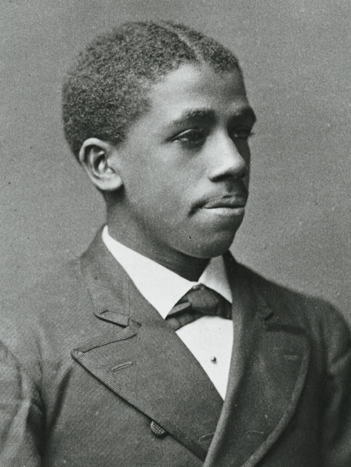Edward Alexander Bouchet, a physicist and educator, became the first African American to earn a Ph.D. from any American university.
Born in New Haven, Connecticut on 15 September 1852 to Susan and William Bouchet, who were both of African descent, Bouchet attended one of the three schools that admitted black students in the area.
As the youngest and only son of four children, Bouchet studied conscientiously and then joined New Haven High School in 1866. He later attended the Hopkins Grammar School where he studied history, mathematics, Greek, and Latin.

He graduated top of his class and was admitted to Yale University at a time a few African-Americans managed to complete bachelor degrees.
According to his biograhpy, Bouchet graduated in 1874 but studied for another two years to earn a
He completed his dissertation on “Measuring Refractive Indices” and due to his academic record, he was nominated to the Phi Beta Kappa Society, making him the first African American ever nominated for the society. However, he was not elected until 1884 when the PBK chapter was reorganized.
Bouchet was also among the first 20 Americans of any race to receive a Ph.D. in physics and was the sixth to earn a PhD in physics from Yale.

and the sixth American to earn a PhD in physics. Pic Credit:cpnas.org
Although he had double degrees, it was difficult for him to get a job. At a point he was denied teaching positions on account of his colour.
Reportedly, other professors in the field of physics avoided any association with him. His applications to work in white institutions were all rejected. He resorted to working at the Philadelphia Institute for Colored Youth.
For 26 years, he taught physics and chemistry until his resignation in 1902. He went to serve at St. Paul’s Normal and Industrial School, Virginia from 1905 to 1908 as the academic director and senior teacher.
He was principal at Lincoln High School in Ohio between 1900 and 1913 and subsequently joined the faculty of Bishop College in Texas.
After a short illness, Bouchet died on October 28, 1918, aged 66 in his childhood home in New Haven, Connecticut. He never married and had no children. He was a Republican.
As with many black achievers in history, Bouchet’s achievements came to light decades after his death. In 1998, Yale University built a monument in his honor.
The American Physical Society established the Edward A. Bouchet Award which is conferred on










